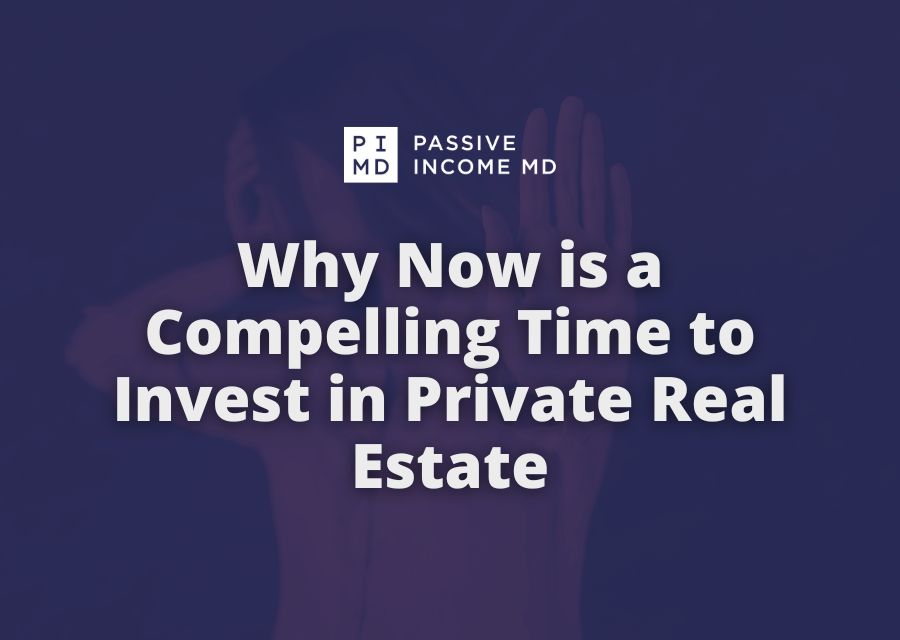Disclaimer: This article has been submitted by our sponsor, MLG Capital
Investors love to quote the old Warren Buffett adage, “Be fearful when others are greedy andbe greedy only when others are fearful.”
Though this mindset is simple in concept, when push comes to shove it can actually be much harder to go against the grain than people think. Money was flooding into private real estate in 2021 and early 2022, when pricing was at its peak, but now that pricing has cooled considerably, investors tend to be more nervous. It’s understandable in many ways – real estate is an illiquid investment and there’s undoubtedly some softness in the market right now. While much of the market is sitting fearfully on the sidelines, MLG Capital thinks that now is the time to get greedy. Here are two powerful forces we’re seeing at play in the market:
Limited Competition on the Buyside
In 2021, there was a vast buyer pool for any type of real estate deal when it hit the market. There were the big institutional players, the smaller syndicators, family offices, private equity groups, and everyone in between. In today’s market, the dynamic looks a little bit different. Many of the institutional asset managers saw their bond portfolios get crushed when rates ran in 2022, forcing a reallocation to maintain their desired portfolio composition. In addition, many groups have seen significant redemption requests, forcing them to be net sellers, and not active on the buy side. Many smaller syndicators saw their fundraising channels dry up as investors have become more skittish, and many are also dealing with challenges in their existing portfolio.
This leaves family offices and more established private equity investors like MLG at the buyer’s table when deals come to market. Fewer buyers generally means a less competitive sale process, which can shift leverage to the buyer, resulting in more favorable pricing.
As a result of more limited competition and higher interest rates, MLG is able to buy at higher cap rates than we’ve seen in a long time.
Historic New Supply Creating Temporary Softness, But Demand is Still Strong
Back when debt cost 3-4% through 2021 and 2022, developers couldn’t get projects in the ground fast enough. Multifamily takes about 24 months to complete, so as we hit the later part of 2023 and into 2024, a glut of new apartment deliveries hit the market, which puts downward pressure on rents, increased vacancy, and increased concessions. In many markets, occupancies have gone from mid-90% (94-96%) to low 90% (90-92%).
However, markets always function in cycles. Looking out over the next several years, new construction starts have reduced dramatically, as developers can’t stomach the increased construction costs combined with financing that can cost 8-10%. As a result, it is expected that new supply deliveries will decrease, but the demand drivers are still very strong, especially as so many people are priced out from home ownership.
So What Does This Mean?
We believe there is an opportunity to buy deals today that have a temporarily depressed NOI at higher cap rates. Let’s think about the math on how that looks.
Consider an apartment building that has 100 units that rent for $1,000/mo. Assuming 95% occupancy and a 60% operating margin, the NOI would look something like this:
$1,000/mo x 100 units x 12 months x 95% occupied x 60% profit margin =$684,000
Let’s say in 2021 someone would have paid a 5.0% cap rate for this property (though many paid far lower, sometimes in the 3% range!). That would equate to a value of $13,680,000
Now, let’s assume that we want to buy the same property today, but instead of 95% occupied, the property is now just 90% occupied and instead of a 5% cap rate, we can pay a 6% cap rate. Since the revenues are lower, let’s assume that we operate only at a 55% operating margin. The NOI would look something like this:
$1,000/mo x 100 units x 12 months x 90% occupied x 55% profit margin = $594,000.
Let’s assume the property can be bought today for a 6% cap rate. That would result in a value of $9,900,000. That is a 27.6% drop in value!!
This is where the opportunity lies in today’s market. Because of the reduced competition, there is a window of opportunity for well-capitalized buyers to buy higher quality assets at temporarily reduced pricing. Markets are cyclical; eventually, all the capital that has been relegated to the sidelines will come back, resulting in more competition and lower cap rates.
Eventually, the historic supply will be absorbed and the market will normalize, with improved occupancies and rents will grow again. Going back to our scenario, let’s assume that occupancy comes back to 95% and operating margins go back to 60%, and the same property is back to an NOI of $684,000.
Even if cap rates stay flat at 6%, the property that was acquired at $9.9M is now worth $11.4M. If cap rates tick down to 5.50%, then the property would be worth $12.4M.
The market is fearful right now, but MLG Capital thinks there is an exciting window to be greedy. We believe that all investors should continue to allocate investment into real estate through all cycles. Timing markets is not a sound long-term investment strategy but investing with a proven sponsor such as MLG through market cycles within real estate sectors that have attractive long-term fundamentals, and pairing those investments with a conservative debt approach, is a good strategy. Please reach out if you’d like to learn more about MLG or how we see the market!


